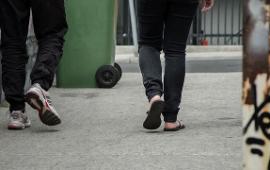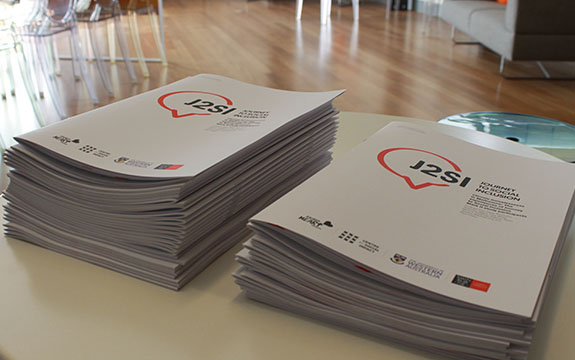Poor health experienced by those undergoing chronic homelessness

In Summary
- High levels of psychological distress, chronic physical conditions and poor social support are common for those experiencing chronic homelessness
- Findings are from research conducted by Sacred Heart Mission, Swinburne and several other institutions
High or very high levels of psychological distress, Post-Traumatic Stress Disorder, chronic physical conditions, and poor social support, are common characteristics of those experiencing chronic homelessness, according to new research.
Sacred Heart Mission (SMH) are working with 60 people to end their cycle of homelessness through its Journey to Social Inclusion Program (J2SI).
All 60 people have experienced homelessness at a young age, long periods of continuous and recurring homelessness, and high levels of social isolation.
Swinburne researchers have been involved managing the qualitative component of the project and exploring the impact of childhood trauma on participants.
The J2SI’s Baseline Research Report provides an insight into the complexity of why 21,000 Australians are experiencing chronic homelessness.
Cathy Humphrey, CEO of SMH, says these findings show people deeply impacted by homelessness are still falling through the cracks of society and our service systems are not equipped to deal with these complex issues.
“J2SI is delivered to those experiencing high disadvantage and chronic homelessness and this report provides reassurance the right cohort was referred to the program, highlighting these people need a relationship-based approach and long-term support.”

The Randomised Control Trial of the J2SI Mark II Intervention compares outcomes for homeless adults receiving the trauma-informed intervention from Sacred Heart Mission with those who receive existing services within the homelessness service system in Melbourne. The trial includes six waves of data collection over three years.
“At the start of the trial we have discovered that 91 per cent of respondents reported having a chronic physical or mental health condition,” says Swinburne’s Dr Monica Thielking, the Swinburne chief investigator on the project.
“Three quarters of respondents were found to be experiencing high or very high levels of psychological distress, which is in stark contrast to the 10 per cent reported for the general Australian public.”
Dr Thielking hopes that the research findings have a positive impact on how support services are delivered to homeless individuals, and that they find participants’ lives have improved as a result of the intervention.
“Including an exit from homelessness, we hope that the J2SI Mark II intervention has a positive impact on a range of other important outcomes, such as an improvement in the mental health and health needs of chronically homeless adults.”
The Baseline Report is the first of many reports anticipated as part of J2SI Mark II study.
The J2SI Mark II Research Study is led by Professor Paul Flatau, Director of the Centre for Social Impact, University of Western Australia. Members of the research team are (listed in the report) from School of Health Sciences, Swinburne University of Technology, School of Population Health, the University of Western Australia, National Drug and Alcohol Research Centre, the University of New South Wales, School of Sport Science, Exercise and Health, the University of Western Australia, Department of Statistics, Data Science and Epidemiology, Swinburne University of Technology.

